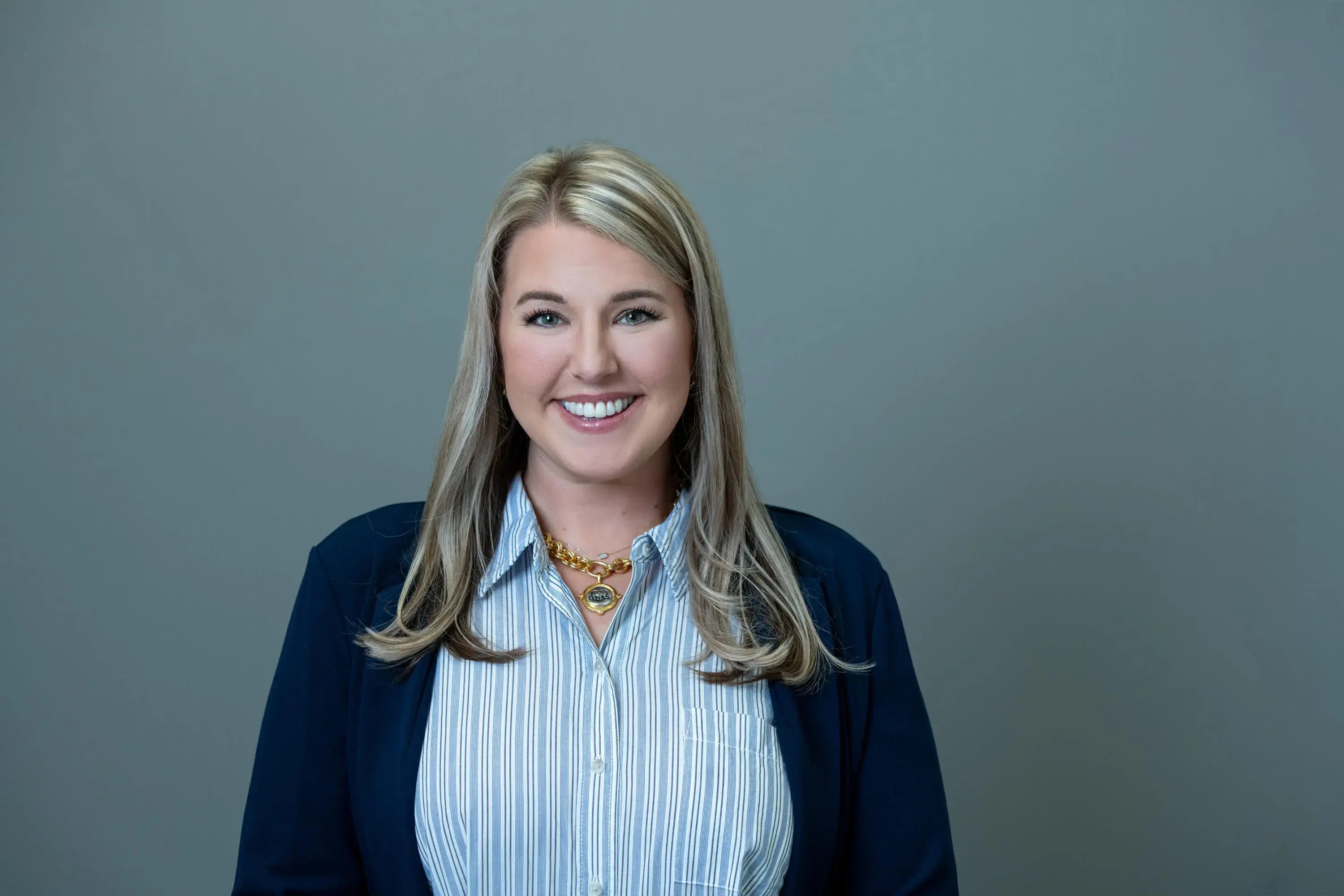TRANSCRIPT | Thread Connects: Future of Work: How to Work Now | Part 1
Lori Winters, CEO of Thread, interviews Scott Mastley, CHRO, to discuss the actionable steps businesses need to be taking now in light of COVID-19 and racial unrest. In part one of this interview, we discuss COVID-19 and the measures you should be taking to protect your business and your team.

Lori Winters:
Thank you for agreeing to interview with me today.
Scott Mastley:
Certainly.
Lori Winters:
I have had a great time recently doing these webinars and town halls with you and with the rest of the team, and helping our clients out with everything PPP, CARES Act. You have had a big impact on a lot of clients of ours. And so right now what we're trying to do, as you know, as we're going to pivot a little bit and start doing more around the future of work, and try to help companies kind of move forward away from this being stuck in the PPP and CARES Act world, and trying to help them figure out how to take advantage of a lot of things that are going on in more of a positive way. So how can we take the craziness of what's going on in the world and help these companies grow and figure out how to navigate this new environment? And you've done a lot to help our clients, especially navigating HR issues.
Lori Winters:
There's COVID-19. There's also a lot of unrest out there. And so what you've been able to do to help companies has been just great. So today I want to ask you a few questions and try to help our clients. The whole goal here is to give them real actionable things that they can do, and not a bunch of fluff. Just we really want to help them. And so first of all, I just would like for you to quickly give an overview of who you are, what your background is, real quick.
Scott Mastley:
All right. I'm Scott Mastley. I'm the chief human resources officer at Thread. And basically, my role is to manage and build the HR services division for Thread and help as many clients as we can, especially small businesses who we're working with. My background is, I was a HR safety training director for a while, had my own business for about eight years consulting small businesses after that, and then built up another HR outsourcing company with some other partners, which we sold to a big insurance company out of Texas. And that's what gave me the opportunity to join Thread.
Lori Winters:
Awesome.
Scott Mastley:
Yeah.
Lori Winters:
So the format here is we're going to go through, I'm just going to ask you a few questions. And then you're going to give actionable answers that our clients and prospects and friends and partners can learn from. So the first question that I have is: In light of the pandemic that's going on right now, and the concern that companies have operating their business, what do you suggest as items that they should be thinking about adding immediately to their handbooks?
Scott Mastley:
Sure. Well, some of the things that have changed in terms of how they operate may affect policies in the handbook. For example, do you have a remote work policy, or a work from home, or a telecommute policy? Different companies call it different things, but it's all basically working remotely. Right? So if you don't have a policy about that, and all of a sudden, half or even all of your employees are not working in the office, then it's better to define how that should be done and what the expectations are. And that should get specific in terms of when you want people to be available, how you want people to communicate. What software do you want them to use?
Scott Mastley:
We use email and chat and RingCentral and things like that, so you can be specific about how you expect people to communicate, how you're going to hold your meetings, how you're going to measure performance. Do you have metrics in place? And are your managers educated about how to use those metrics because now they can't see the effort? So they can't go, "Yeah, Lori tries real hard, so let's give her a break." They don't know what you're doing. Right? So they've got to have a way to be in touch and to manage and look at deliverables. And maybe you're measuring activity in a way that's different than you did before.
Scott Mastley:
But then you have to look at your handbook and say, "Okay. Do we have any kind of return to work policy? Is this going to be a temporary thing or a permanent thing?" How are you going to communicate that? How are you going to adjust your travel policies? Are you going to limit all travel, whereas before, you had people flying all over the place? What are you going to do if people go on vacation and they visit hot spots? Are you going to have them quarantine? Are you going to look at how you have your leave policies set up and your attendance policies?
Scott Mastley:
So for example, you may have to adjust your PTO and your other policies to say, "If you are quarantined due to, blah, blah, blah, then you may be eligible for the emergency paid sick leave." And then you're going to add an emergency paid sick leave policy in your handbook. Right? The expanded FMLA may have an additional policy if people are eligible for that as well. If you're under 50 employees, you may be exempt from those two things, but you may still have to look at your PTO policy to say, "This is the order in which this happens," so if you're out of work because you're diagnosed, maybe you're eligible for the emergency paid sick leave. Once that's done, you can use available PTO or vacation time through the company. Once that's done, it's unpaid leave.
Scott Mastley:
Then you're going to get questions about unemployment, so there are a lot of different things that you could look at in your handbook. If you're a detailed company that likes to have a big detailed policy, then you can put it all on there. If you're not, you can just refer to HR, keep it simple.
Lori Winters:
Got you. There's a lot we need to be thinking about, for sure. Something to add onto that, you may not have had someone in your company yet test positive. But now that so many states are opening back up, I think it's just a matter of time before that happens to most companies. What policies should we put in place to protect those that are infected along with those that could potentially get infected? What policies should we put in place for that?
Scott Mastley:
Yeah. I mean, this is where you have a little bit of overlap between states who may have requirements of businesses in their state, or even small counties may have requirements in terms of wearing masks, or testing employees before they come to work, that kind of thing. And then you have the CDC guidance as well, that talks about: What if people get diagnosed? What if they have symptoms? So you kind of have to have a big safety plan that you probably didn't have before relative to this.
Scott Mastley:
Most smaller businesses just didn't have this. Right? They may say they had emergency response plan, but it was due to weather emergencies and those kind of things. So if you had that at all, congratulations. You're ahead of most. But if you don't have it, you need to have a plan in place. And it doesn't have to be 100 pages long, but you can talk about things like: What are we going to do as a business to prepare to have employees at work? You have a safety plan that talks about: What are you doing in your building? What are you doing in your office? You can talk about spacing of offices, limiting number of people in the office, disinfecting the office, a protocol for entering the office. Some companies are doing the temperature tests outside of work.
Scott Mastley:
If you do that, you don't want to write down the person's name and temperature because that becomes medical information. So you just kind of say, "You're good," or, "Step aside." Then you can talk about: Are masks required? So what are you going to require of your employees that was not required before? All meetings must be virtual. You must wear a mask if you come into the office. You must have to sign up ahead of time to be in the office because we're limiting the number of people that can be there.
Scott Mastley:
Then you've got to look down the road a little bit and say, "Okay. What do we do if?" And you've got multiple scenarios. If an employee is diagnosed, you have to have a plan in place for that. The person will be separated right away, probably sent home. According to the CDC guidance, is going to have to quarantine. What's funny is an employee who's diagnosed with COVID-19 is you can do a time based or a testing based thing. So if you do time based, they might have to be out of work for 10 days. And that's 10 days from when their symptoms started. And as long as those last three of those 10 days are symptoms free without the help of fever reducers, they can come back to work.
Scott Mastley:
But if you have an employee who's been exposed, say someone in their family has it, or they've been working side by side with someone who's been diagnosed, that person may need to be out of work for 14 days because it may take them a little bit to show symptoms if they have it or not. So it's a little weird, but you need to think through. What happens if you have symptoms, but have not been diagnosed, if you have no symptoms at all, but have been exposed, or if you have been diagnosed? And kind of define how that's going to work for you, so employees understand what that is.
Scott Mastley:
But then you also, I know this is a long answer, also have to think about: What are the unintended consequences of every decision? So there are really small businesses that have 20 employees who might be exempt from paying the emergency paid sick leave. But if they choose to pay it, they can't say, "I'm going to pay it for this one guy, but not pay it for the next guy." Right?
Lori Winters:
Right. Right.
Scott Mastley:
If you choose to do it, you've got to do it. So if you choose not to do it, you're choosing not to do it at all. So you need to think about that.
Lori Winters:
Makes sense. It's very difficult trying to manage a team right now, a company right now, knowing all these things are going on and how to navigate that. And so I just feel for so many companies out there.
Lori Winters:
So Scott, we have a little storm going on. We've got some dogs barking. But that's okay, we're going to move forward.
Lori Winters:
We're talking about if people are infected, bring it to work, get other people infected, I want to kind of touch on real quick: What are your thoughts on what is the liability as an employer to ... What is our liability as an employer if someone gets infected in our office?
Scott Mastley:
Right. Well, you've got workers' comp claims, so if someone were to get infected, they could file a workers' comp claim and say, "I got this illness or this issue here," for that. Now I don't know how that will play out, even though they have said that the assumption is that if people file a workers' comp claim, that the assumption is that they got this at work, even though we all have lives outside of work and everything else. It's hard to prove where you were exposed or not exposed. Right? If anybody's been at a grocery store, they've probably been exposed at some point.
Lori Winters:
Yeah.
Scott Mastley:
Because it normally doesn't last very long, I don't know how it's going to play out if people do file workers' comp claims. But there are some people who have had extended periods of time with symptoms. So for them, if they got it at work, then they may be out of work for a little while and would get paid by workers' comp, possibly.
Scott Mastley:
Georgia, like many other states, is recently working on passing a bill that protects employers from the kind of liability where if you have a customer walk into your business, that they can't turn around and sue you and say, "I got COVID-19 when I walked into your store or your facility," because they're seeing the plaintiff's attorneys getting all excited about this issue.
Lori Winters:
I bet.
Scott Mastley:
It's starting to circle around. And so a lot of states are moving pretty quickly to pass that to protect employers. So for example, in Georgia, we have a thing called SB359, that you have a warning message you put at the entrance to your business that basically says, "We're not liable. You're choosing voluntarily to enter this business." Right?
Lori Winters:
Got you.
Scott Mastley:
Now if you are wantonly reckless, or negligent, or something like that, then maybe. But if you're taking your safety precautions, and you're cleaning and your employees understand the expectations, you're doing all these things you're supposed to do, you have hand sanitizer and you're requiring masks and social distancing and all that, then you're showing good faith. You're doing what you're supposed to do to try to keep it safe.
Lori Winters:
Okay. That makes sense. That's good. So now that everybody is ... Not everybody, we've got a lot of companies out there that have all essential workers. Right? And they have to be out in their office, or in their manufacturing facility, or whatever. But there's so many other companies that are going either full work from home, or they have been work from home, or they're doing a hybrid work from home type of situation. Are there some things that we need to be thinking about as employers to put into place around the work from home policy?
Lori Winters:
And for instance, some people in a company could be considered essential while others are not. How do we make that fair and equitable? Do you have some thoughts or items, actionable items around that for employers?
Scott Mastley:
Well, I think there's the big definition of who's an essential business. Right? And that comes from the state or the federal government. And so that's pretty clear. And as long as you're operating in that essential business, you'd think that they would argue that most of those employees are essential, just to keep that whole business running. Right?
Lori Winters:
Right.
Scott Mastley:
If you have a trash company, you need people to pick up the trash and all that kind of stuff. Energy company, power companies, all those things are really, really important, hospitals, police, firemen, all that. But internally in your company, how do you, separate from that, determine who within my business must be here to work? Right? So you may have essential employees who you say, "I need you to keep working throughout this. And if you're unable to work because you're sick, I need to have a plan in place to fill that gap somehow." So there's that kind of essential worker, which is, I need you whether you're here or at home. I just need this function to continue to happen. And we need to have a backup plan for that, so that's something for every business to think through.
Scott Mastley:
It's a good exercise in any circumstance to say, "Who are the people we can't live without?" And whether you're defining those people and their specific set of skills, or it's the function they perform. So is it the role, or the person, or both? If it's the role, do we have someone else who can step in and fill that role if that person needs to be out for an extended period of time? If it's the person, then if you don't have a backup for that person, you have to start thinking about: How do we train someone else to at least handle the most important functions of that person's position?
Scott Mastley:
And you need to make it business focused or centric. So in other words, you don't want to discriminate against anyone intentionally or unintentionally by saying, "Well, some can stay home, some can't." Some can have different expectations willy nilly. You want to be able to say, "There's a business case for why someone needs to be here," and it can't be just because, well, I'm a traditionalist, and I like to see people at work. Right?
Lori Winters:
Right.
Scott Mastley:
Times have changed a little bit with that. And things have adjusted more towards proving that remote work works in many positions and many companies. So if you're going to say that someone needs to be here, now if you have someone who's loading trucks in the warehouse, they have to be there to load the truck. You can't do that from home, so that's obvious. It's the admin positions in the office that are a little trickier for you to say, "Okay. Does the person truly have to be here in the office?" Maybe, maybe not. But you need to go through that exercise of talking about those positions and make a business case for what's really essential and what's not.
Scott Mastley:
Then you have to explain to people, if I tell you, "You're not essential, that doesn't mean we don't care about you, or you're not important to our business, you don't matter, or anything like that. It's just a word relative to this circumstance."
Lori Winters:
Meaning you're essential to be in the office.
Scott Mastley:
Yeah. We need you here.
Lori Winters:
Right. You can't do this remote.
Scott Mastley:
Right.
Lori Winters:
Do you think that this is causing ... So what if you have an employee who decides that they don't think it's fair. They don't think it's fair that they would have to subject themselves to potentially getting sick and being in the office because other people don't have to be, but it's a position that they cannot get done at home? What should we as employers do about that?
Scott Mastley:
Well, that's a big challenge right now, and one of the biggest challenges. And you've got to lay out the expectations in the beginning with your employees. So if you're an essential employee, the expectation is you are here at work. You start by making sure they understand all the safety precautions you take, sharing your safety plan, your return to work plan, so that they don't have the concern that they're going into an unsafe place, so that's number one. We've created a safe work environment, as safe as we can.
Scott Mastley:
If any of these things happen, and these things are someone gets symptoms, diagnosed, et cetera, here's what we're going to do to handle that to continue to protect you, so that's part two of that. And then part three is we need you at work. We are operating. We are an essential business. We're at work. So if someone is not diagnosed, or having symptoms, or any of those things, and they're just choosing not to come to work, they can't really argue that it's unsafe when you've created a safe place.
Scott Mastley:
They can say they don't feel safe, or something like that. But at that point, you may have a decision to make. Are we going to be creative and flexible with the way we've done things in the past, in terms of giving unpaid leave, or extended vacation, or anything like that because we know this is a weird time? Or are we going to say, "We need you at work. You have a job to do. If it's not you, it's someone else. And you need to let me know if you're coming back to work or not." If they say no, then they might not work there anymore.
Lori Winters:
Right. It's a lot of tough decisions that are having to be made. And it's challenging for both. It's challenging for the business leaders, managers, and the employees because there's a lot of fear that's going on.
Scott Mastley:
Right.
-END OF TRANSCRIPT FOR PART 1 OF INTERVIEW-














